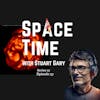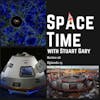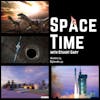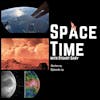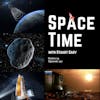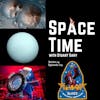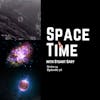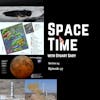70: New Theories On the Formation Of Primordial Black Holes

Stream episodes on demand from www.bitesz.com/spacetime (mobile friendly)
Help support SpaceTime, become a patron for as little as $3 per month. And we have rewards. Check out the details at https://www.patreon.com/spacetimewithstuartgary
* New theories on the formation of primordial black holes Mysterious long hypothesized objects known as primordial black holes may have made the universe the way it is today. The claims speculates that these enigmatic black holes from the beginning of time formed before the first stars, and later helped create many of the heavier elements found in nature including gold, platinum, and uranium.
*Tabby’s star probably just dusty rather than an alien megastructure A new analysis of a strange looking star which experiences wild fluctuations in brightness indicates massive amounts of dust could be causing the phenomenon. The spectral type F main white sequence star KIC-8462852 first sprung to attention in 2015 when citizen scientists looking through data from NASA’s planet hunting Kepler Space Telescope noticed abnormal cycles of dimming and brightening coming from the star.
*And How the world’s biggest volcanoes formed Scientists have solved a 168 year old mystery on how the planet’s biggest and most active volcanoes were formed. The study found the Hawaii’s volcanoes formed along twin tracks due to a shift in the Pacific plates direction three million years ago.
*Indian rocket failure An Indian rocket has failed to place a new navigation satellite into orbit after the payload faring failed to separate during the launch. The PSLV-C39 mission blasted off normally from the Satish Dhawan Space Centre on the Bay of Bengal coast carrying the IRNSS-1H payload – the eight satellite for the Indian Regional Navigation Satellite System.
*Expedition 52 crew return to Earth The Soyuz MS-04 capsule carrying three expedition 52 crew members has successfully returned to Earth after 135 days in orbit. The spacecraft touched down under the canopy of a massive orange and white parachute in clear blue skies on the wind swept Kazakhstan step.
*The Science Report
Adults who have poor sleep patterns are more likely to be overweight or obese.
Tropical cyclones and hurricanes will get worse in the Pacific because oceans are warming due to climate change.
North Korea successfully tests a thermonuclear bomb capable of being fitted to the warhead of an ICBM.
Scientists discover human footprints on Crete dating back some 5.7 million years.
More good news for chocolate lovers.
For Enhanced Show Notes, including photos to accompany this episode: http://www.bitesz.com/spacetime-show-notes
Subscribe, rate and review SpaceTime at all good podcasting apps…including iTunes, Google Podcastsm, Stitcher, Pocketcasts, Podbean, Radio Public, Tunein Radio, google play, etc
Learn more about your ad choices. Visit megaphone.fm/adchoices
Support this show http://supporter.acast.com/spacetime.
See acast.com/privacy for privacy and opt-out information.
The Astronomy, Space, Technology & Science News Podcast.
New to SpaceTime with Stuart Gary?
Here are some great episodes to start with.







































